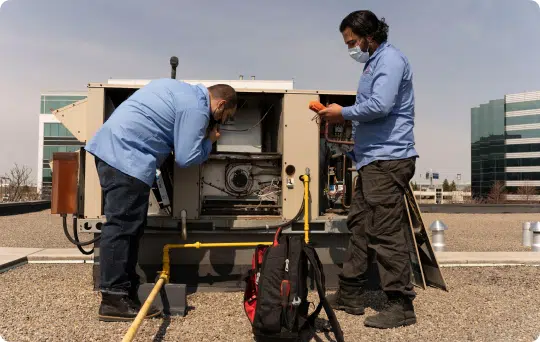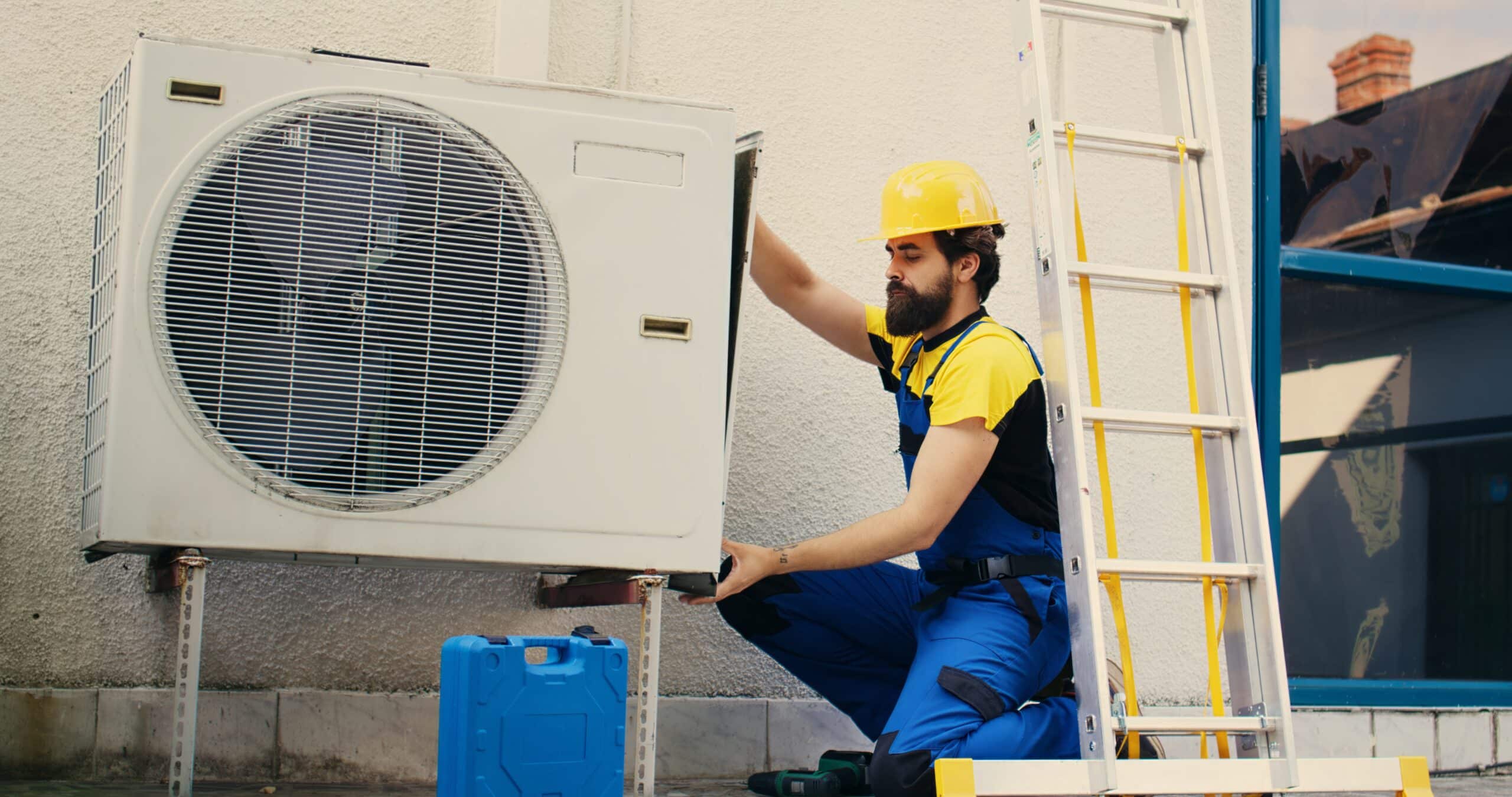Energy-Efficient A/c Equipments to Reduce Utility Expenses
As power prices proceed to rise, the relevance of energy-efficient A/c systems becomes significantly noticeable. These systems not only assure considerable financial savings on energy expenses yet likewise add to a more lasting future by lessening energy usage.
Advantages of Energy-Efficient Heating And Cooling Equipments
Energy-efficient Cooling and heating systems provide countless advantages that extend beyond simple cost financial savings. By consuming less energy, these systems contribute to lower greenhouse gas discharges, aiding to battle climate change and promote sustainability.
Additionally, energy-efficient a/c systems commonly supply boosted comfort levels. A lot of these systems feature sophisticated innovation that permits for far better temperature level control and enhanced air high quality (DMAKS HVAC). This causes a much healthier indoor atmosphere, which is particularly essential for individuals with allergies or respiratory system concerns
In addition, buying energy-efficient cooling and heating systems can boost property worth. As even more customers prioritize energy efficiency, homes and structures furnished with these systems may attract higher proposals in the realty market.
Types of Energy-Efficient Heating And Cooling Options
How can home owners and organizations choose the most ideal energy-efficient cooling and heating choices for their needs? The marketplace uses a range of energy-efficient HVAC systems, each made to improve comfort while decreasing energy consumption.
One alternative is the variable refrigerant circulation (VRF) system, which effectively controls the temperature level in multiple areas within a building. This system adjusts its refrigerant circulation to match the desired temperature level, resulting in significant energy savings.
One more preferred option is geothermal heatpump, which use the planet's steady temperature level to warm and great areas. By moving heat to and from the ground, these systems show remarkable effectiveness, particularly in moderate climates.
Additionally, ductless mini-split systems give an energy-efficient option for homes doing not have ductwork. These systems enable zone-specific home heating and air conditioning, minimizing power waste in unoccupied locations.
Last but not least, high-efficiency heating systems and a/c, with advanced SEER and AFUE scores, use dependable environment control while eating less energy than standard versions. By evaluating these choices, house owners and businesses can select a cooling and heating system customized to their specific requirements and energy effectiveness objectives.
Key Features to Consider

Following, check out the sort of compressor utilized in the system. DMAKS HVAC. Variable-speed compressors can adjust their output to match the home heating or cooling need, causing improved convenience and power cost savings contrasted to single-speed designs. In addition, search for systems outfitted with wise thermostats that supply programmable settings and remote gain access to, enabling much better control over power usage
An additional critical feature is the system's air filtration capability. High-efficiency filters can improve indoor air quality and decrease energy consumption by ensuring the system operates successfully. Furthermore, consider the kind of cooling agent made use of; contemporary systems commonly utilize environment-friendly refrigerants that have a lower environmental influence.
Finally, guarantee that the system is compatible with zoning modern technology, which permits personalized temperature control in various locations of your home, enhancing convenience while lessening energy use.
Tips for Selecting the Right System


Following, think Visit This Link about energy effectiveness scores, particularly the Seasonal Power Effectiveness Proportion (SEER) for cooling down systems and the Annual Fuel Application Effectiveness (AFUE) for furnace. Greater rankings suggest greater efficiency, which can lead to significant cost savings on utility costs gradually.
Additionally, examine the kind of a/c system that ideal matches your lifestyle and budget plan. Choices consist of central air, ductless mini-splits, and heatpump, each with its own collection of benefits and downsides.
Do not ignore the importance of correct setup and sizing; an improperly sized system can cause inefficiencies and raised wear. Seek advice from with a specialist Cooling and heating specialist to obtain professional recommendations tailored to your home's one-of-a-kind needs. This thorough technique will make certain that you pick an energy-efficient cooling and heating system that meets your demands and spending plan effectively.
Upkeep for Optimal Performance
When the right HVAC system remains in area, ongoing maintenance comes to be key to making sure ideal performance and durability. A well-maintained system operates extra effectively, leading to reduced energy intake and minimized utility bills. that site Routine assessments and tune-ups should be set up a minimum of two times a year-- once before the air conditioning season and once before the heating period.

Homeowners need to additionally be vigilant about monitoring their HVAC system's performance. Unusual noises, varying temperature levels, or raised power costs can indicate underlying problems that need immediate attention. By resolving these issues without delay, homeowners can avoid pricey repair services and prolong the life expectancy of their systems.
Investing in an upkeep strategy with a certified technician not just enhances efficiency but likewise offers peace of mind, recognizing that the system is running at its finest. DMAKS HVAC. Normal maintenance is as a result crucial for maintaining power effectiveness and minimizing total operational costs
Verdict
In verdict, energy-efficient heating and cooling systems offer a sensible solution for decreasing energy costs while enhancing comfort and air top quality. By integrating advanced innovations and alternatives such as geothermal warm pumps and ductless mini-splits, residential property proprietors can accomplish significant power financial savings and add to environmental sustainability. Mindful consideration of system functions and continuous maintenance additionally makes sure optimum performance, making energy-efficient systems a prudent financial investment for both financial and environmental benefits.